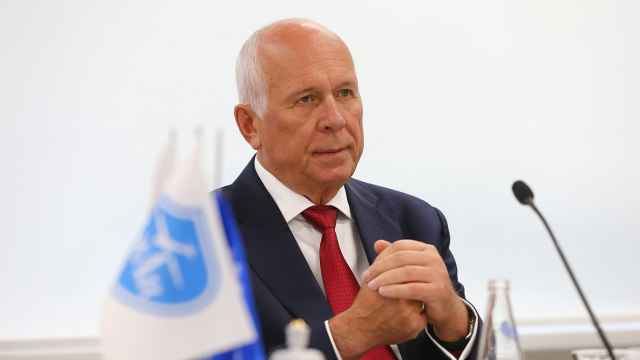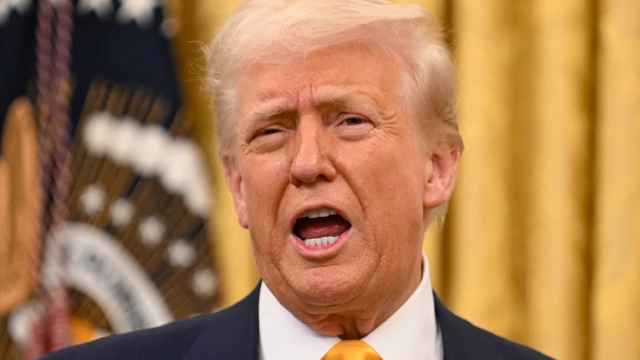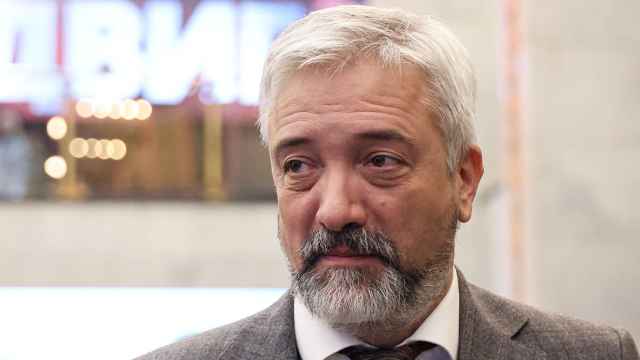LONDON — The Winter Olympics in Sochi should not be affected by the heightened political tensions between the U.S. and Russia over Edward Snowden, gay rights and other issues, a vice president of the IOC said.
"If there are political tensions arising, it wouldn't be the first time before the Olympic Games, and in the main, Olympic Games overcome political tensions," IOC vice president Craig Reedie of Britain said Wednesday.
Reedie downplayed the impact of U.S. President Barack Obama's decision to call off a Moscow summit with Russian President Vladimir Putin. The snub follows Russia's decision to grant asylum to Snowden, the National Security Agency leaker, in defiance of Obama's repeated requests.
Obama's decision also reflects strained ties with Russia over missile defense, Syria, human rights and other issues. He canceled the summit with Putin exactly six months before the start of the Olympics in the Black Sea resort of Sochi in southern Russia.
"I think the games are quite clearly an occasion which encourages peace among nations and I'm pretty sure, despite pressures at the moment, that's what will appear to the world in February next year," Reedie said in a telephone interview.
Reedie also cited the global situation before the 2002 Winter Olympics in Salt Lake City, which were held just months after the Sept. 11, 2001, terror attacks in New York and Washington.
"There must have been a question mark over that after what happened to New York, and the games went ahead," Reedie said.
The International Olympic Committee official also said the 2008 Beijing Olympics were a "triumph" despite the pre-games controversies over China's record on human rights, Tibet and press freedoms.
"It's happened twice in recent years," Reedie said. "I think it's far too early to say what's going on at the moment is going to be massively problematic."
The buildup to the Sochi Games, scheduled for Feb. 7 to 23, has also been overshadowed recently by criticism of Russian anti-gay legislation. A law signed by Putin in June bans "propaganda of nontraditional sexual relations."
Obama said he had "no patience" with countries that discriminate against gay people.
"I think they [Putin and Russia] understand that for most of the countries that participate in the Olympics, we wouldn't tolerate gays and lesbians being treated differently," Obama told host Jay Leno on Tuesday's edition of NBC's "The Tonight Show."
Stephen Fry, the British author and actor, went further in an open letter to British Prime Minister David Cameron and IOC President Jacques Rogge, comparing Putin's "barbaric, fascist law" to persecution of Jewish people in Nazi Germany.
"An absolute ban on the Russian Winter Olympics of 2014 in Sochi is simply essential," Fry wrote. "At all costs, Putin cannot be seen to have the approval of the civilized world."
Fry's letter was delivered by All Out at Olympic headquarters in Lausanne along with a 320,000-name petition asking the IOC to denounce the law in Russia.
After a one-hour meeting with All Out campaigner Guillaume Bonnet, IOC spokesman Mark Adams said the Olympic body "cannot enter into political debate."
"Our challenge is to change the world through sport and in sport, and that is what we are doing," Adams said. "We very much respect and welcome gay athletes to the games. We will ensure to the best of our ability that people can come and compete and spectate free of discrimination."
Earlier this week, IOC board member Ser Miang Ng — a presidential candidate to succeed Rogge next month — suggested to reporters in London that Olympic officials were engaged in "quiet diplomacy" with the "highest authority" in Russia.
All Out's Bonnet noted that Rogge would soon be in Moscow, where the IOC has a joint board meeting and news conference with the IAAF athletics governing body on Friday.
"I would hope wise counsel would be taken because they [Russia] have much to gain from a successful world athletics championships and have much to gain from a successful Olympic Games and [2018] World Cup," Reedie said. "It is in their interests to have a decade of sport."
Also on Wednesday, IAAF deputy general secretary Nick Davies suggested that hosting international events could lead to Russia reconsidering its position on gay people.
Seeing people with "alternative lifestyles … may serve as an impetus for them [Russia] to reconsider their views instead of just living in an isolated society," he said in a statement.
Still, Davies said that although the IAAF was opposed to any discrimination, it would follow the IOC by not raising political issues during its sports events.
A Message from The Moscow Times:
Dear readers,
We are facing unprecedented challenges. Russia's Prosecutor General's Office has designated The Moscow Times as an "undesirable" organization, criminalizing our work and putting our staff at risk of prosecution. This follows our earlier unjust labeling as a "foreign agent."
These actions are direct attempts to silence independent journalism in Russia. The authorities claim our work "discredits the decisions of the Russian leadership." We see things differently: we strive to provide accurate, unbiased reporting on Russia.
We, the journalists of The Moscow Times, refuse to be silenced. But to continue our work, we need your help.
Your support, no matter how small, makes a world of difference. If you can, please support us monthly starting from just $2. It's quick to set up, and every contribution makes a significant impact.
By supporting The Moscow Times, you're defending open, independent journalism in the face of repression. Thank you for standing with us.
Remind me later.






